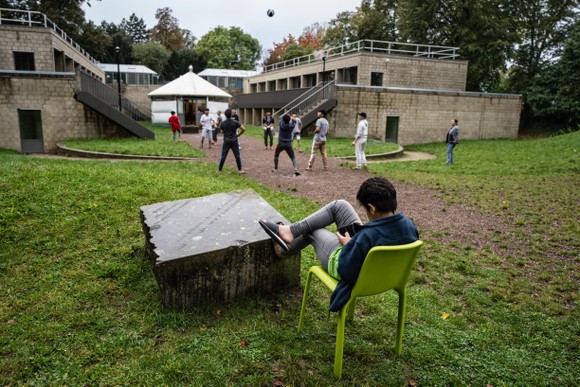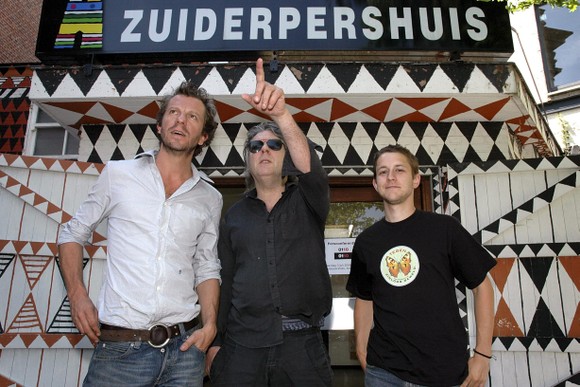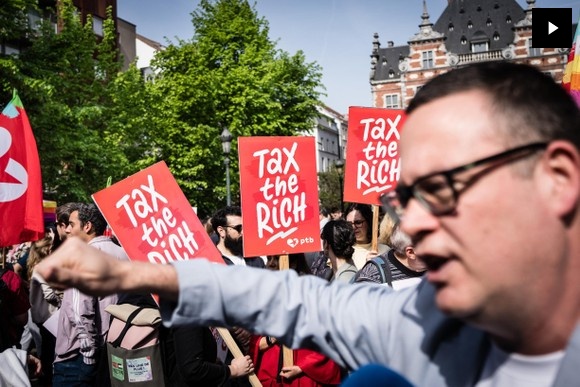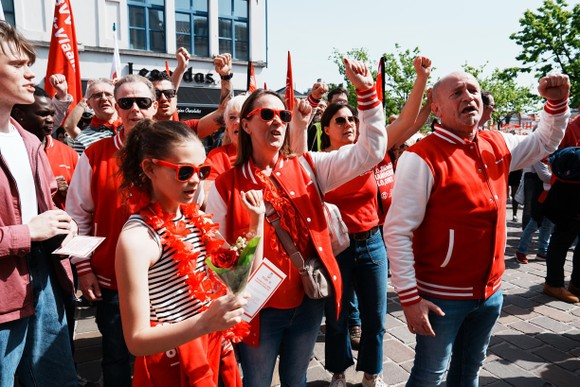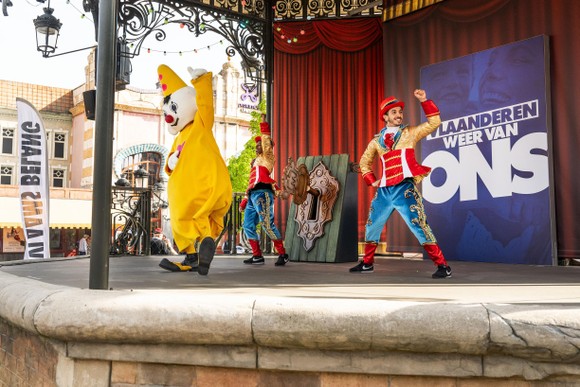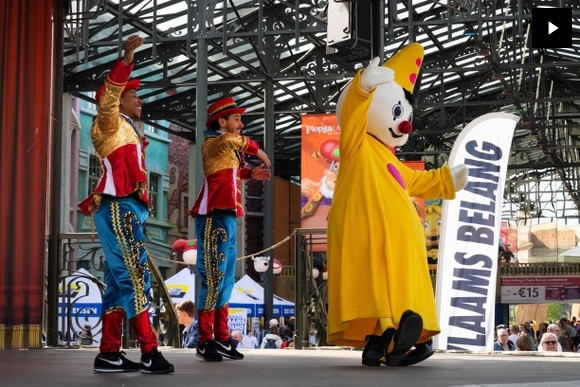the revolution in Rojava, a meeting took place in February in Rennes.
The opportunity to reflect and debate an essential question for all
revolutionaries, internationalism. ----- On February 10, 2024, an
internationalist meeting was organized in Rennes: "Bevañ an
etrebroadelouriezh" ("long live internationalism" in Breton). This
meeting was born from the desire to organize a tribute to
Kendal-Breizh/Olivier Le Clainche, a Breton independence and libertarian
activist who joined the revolution in Rojava (Kurdish part of northern
Syria) in 2017.
He joined the fighters of the YPG-international, participated in the
liberation of Raqqa and the offensive of Deir ez-Zor against Daesh,
before joining the defense of Afrin then violently attacked by Erdogan's
Turkey and its jihadist militias.
It was in this region, a bastion of the Kurdish revolutionary movement,
that he was martyred on February 10, 2018. In order to pay tribute to
Kendal-Breizh and his struggles, a day on internationalism was organized.
The initiative was supported by his family, his friends and comrades as
well as by the French-speaking internationalist network supporting
Kurdish struggles "Serhildan" and the CDKR (Kurdish Democratic Center of
Rennes).
It brought together more than 200 people from different organizations
and localities. This day demonstrated the strength that the
internationalist struggle can have and the concrete applications that it
can take, beyond grand theories.
At its heart: caring for the dead and knowing their stories, reflecting
on our struggle strategies and producing collective critiques. She
demonstrated the importance of building internationalism locally and
materially.
Building solidarity between peoples
The day began with tributes to Kendal Breizh. The CDKR named the "blood
ties" uniting Olivier to the "family" of those who fight for the
revolution. Friends and comrades sang and read poems in Breton, Kurdish
and French. Comrades of the YPG-international battalion sent a video.
A letter he wrote himself in case he died was read by a friend. Habitual
in the tradition of the Kurdish liberation movement, a place was planned
to commemorate the martyrs who fell in the defense of Afrin. Those
present were invited to add photos of people to whom they wanted to pay
tribute.
Here, the deceased are not forgotten, they are part of the collective
fabric and connect those who struggle. The afternoon began with the
presentation of historical work on internationalist struggles in
Brittany: from the influence of the internationals to the Spanish
Revolution, including the links between national liberation struggles.
Interviews with activists have illustrated what an internationalist
commitment can mean in Brittany. Knowledge of this history allows us to
perpetuate this solidarity between peoples, to claim it and to contrast
these concrete experiences with the feeling of powerlessness that can
pass through us in the face of the scale of capital's offensive.
It allows us not to forget our deaths, to learn from their struggles and
their limits. This is also the meaning of maintaining the memory of
those who lost their lives fighting for just causes.
Questioning the issues and practices
A round table was then an opportunity to bring together actors and
actresses in today's internationalism. We questioned the issues,
internationalist practices and the complementarity of the modes of
action of the invited organizations: the emphasis is placed on training
in Kurdish theories and practices for the Academy of Democratic
Modernity (association of dissemination of the paradigm of the Kurdish
confederalist movement), concrete and political solidarity with
revolutionary precursors for International Red Relief (political support
organization for revolutionaries undergoing repression), a practice of
exchanges in the form of study trips by internationalist brigades , and
investment in local struggles in the countries visited for Askapena
(Basque internationalist organization).
All stressed the need to learn from other struggles to strengthen their own.
To end the day, artists from Kurdistan and Brittany took turns on stage
while the room danced to traditional steps, the fest-noz dancers not
being unworthy in their learning of Kurdish dances!
Internationalism: a crucial issue for We are emerging from this
political moment with strength, reflections and the desire to continue
moving forward on this path. The capitalists and imperialist powers are
extremely globally organized. To defend ourselves and oppose
emancipatory alternatives, we must do the same.
Internationalism has developed over time in structures with different
ideologies: socialism or left-wing national liberation struggles. They
made it possible to share experiences, identify common enemies and
construct shared analyzes regarding the emancipation of peoples in a
given era.
We have the role of maintaining the memory, of transmitting this rich
history, of claiming this heritage and drawing lessons from the
different strategies that have taken place, to think about our current
practice of internationalism.
We can question the reference period when we study the History of
internationalism: solidarity between peoples pre-existed the
theorization of socialism. Likewise, international struggles go far
beyond the traditional framework, as evidenced by environmentalist and
feminist struggles built on solid local foundations.
In a world where the offensive of capital is fierce economically and
politically, spaces for sharing, celebration and reflection such as the
tribute to Kendal Breizh are more crucial than ever and open doors to
the imagination of renewed collective struggles.
UCL Finistère
https://www.unioncommunistelibertaire.org/?Bretagne-Bevan-an-etrebroadelouriezh-Bretagne-internationaliste
_________________________________________
A - I N F O S N E W S S E R V I C E
By, For, and About Anarchists
Send news reports to A-infos-en mailing list
A-infos-en@ainfos.ca






